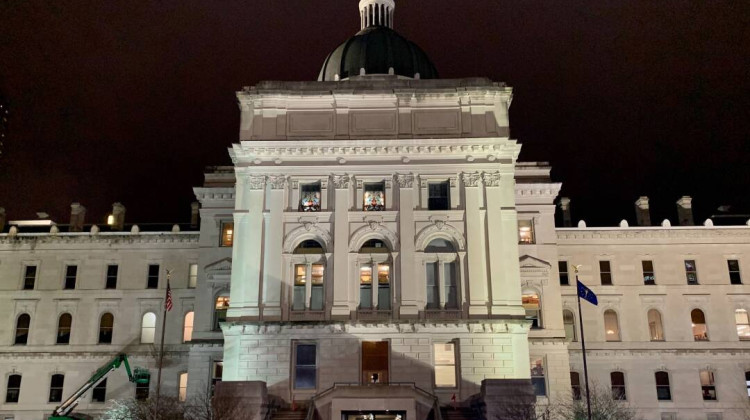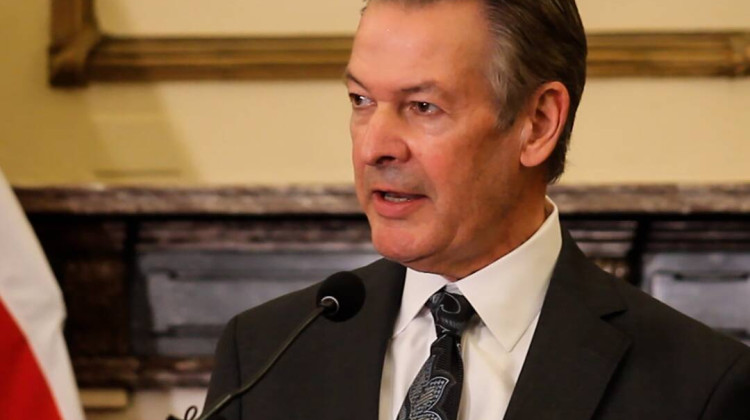One year after the state launched an optional program to help landlords and tenants see if they can reach an eviction settlement out of court, tenant advocates say the program hasn’t seen enough buy-in to be effective.
The Landlord and Tenant Settlement Conference Program tries to bring both parties to the table by offering a free session with a neutral mediator. At its launch, Indiana Chief Justice Loretta Rush said of the program that “In the best of outcomes, more tenants will stay in their homes and more landlords will receive rent.”
As of Aug. 4, the program has received 791 requests for mediation. Only 48 cases have actually been facilitated and just 26 of those resulted in a tenant staying in their property.
State officials note that of the 728 cases not facilitated there were a variety of reasons, including one party refusing to participate, no response from a party, or a settlement being reached before a requested mediation.
According to data from Evictionlab, which tracks eviction filings nationwide, nearly 57,000 evictions have been filed in Indiana since the start of the pandemic.
The state’s own data on eviction filings indicates that over 27,000 evictions were filed between Jan. 1 and Aug. 1 of this year.
Andrew Bradley is policy director with Prosperity Indiana, which advocates for stronger tenant protections.
“I think what we’re seeing is that without that buy-in and without a mechanism to get people at the table it’s not going to have a systemic or significant impact on this housing stability crisis,” he said. “If the results are that we have dozens of households that are helped we are certainly not anywhere - that is not a systemic solution to what is a systemic problem.”
Bradley points out that many of the evictions filed during the pandemic are likely still pending, so long as the CDC eviction moratorium is in place. What’s not clear is how many more may be filed when the moratorium lifts.
“That’s when you’ll see a whole new wave,” he said. “And that includes those people who have been hanging on and waiting. They may not know this is an option. Unless we create a system for this it has the potential to overwhelm the court system.”
Bradley said he’d like to see participation in programs like the Settlement Conference required, as opposed to just optional.
Brandon Beeler, Housing Law Director with Indiana Legal Services, said the state may need to use a mandate or incentives to increase participation.
“The landlords, in my view, have little incentive to do it at this point,” he said. And according to Beeler, it’s not clear many tenants know the program exists.
“I think there is certainly that issue on the tenant side of better informing them of what the program is and knowing it’s not some trick to get you to sign some agreement with your landlord,” he said. “There’s some general confusion about why they would even know to request it.”
A spokesperson for the Indiana Supreme Court, which oversees the settlement conference program, said “with all things there is room for growth and change but at this point we are still focused on the optional participation.”
“We do want this program to be more widely known so that folks can have the opportunity to participate - if they want to,” the spokesperson added.
 DONATE
DONATE









 Support WFYI. We can't do it without you.
Support WFYI. We can't do it without you.